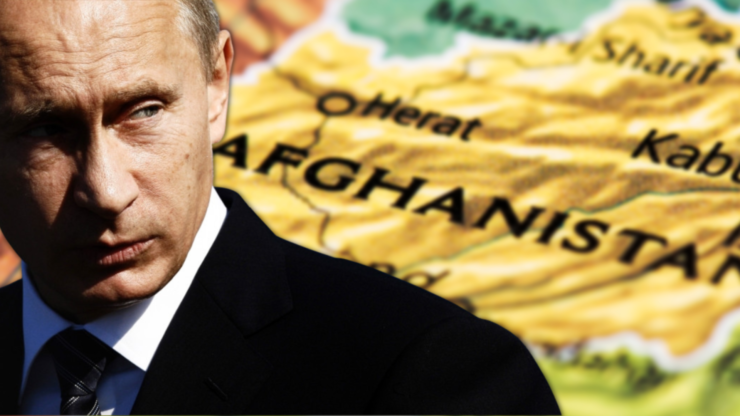
Since the Taliban returned to power in Afghanistan in 2021 after the US withdrawal, the government has been struggling to gain international recognition. The United States and its Western allies, the self-proclaimed champions of human rights, have left the country in the lurch. The sanctions imposed by the West on Afghanistan are sparking a humanitarian crisis in the country. However, the West continues to penalize the people of Afghanistan through international institutions, while remaining oblivion to the plight of the people of the country. Intervening in the domestic matters of poor nations has remained a routine affair of the United States since the end of the Cold War. This has weakened its position as a superpower and tarnished its soft image around the world.
The vacuum created by the rapid decline of the US hegemony around the globe is being successfully filled by Russia and China globally. When most of the Western nations opted to cut off their diplomatic relations with the Taliban-led Afghanistan. Russia was one of the few countries that continued its diplomatic relations with the incumbent Afghan government. Russia being the rising superpower of the world responsibly tackled the Afghan issue after the US withdrawal from the country. Dmitry Zhirnov, a Russian Ambassador, was the first foreign diplomat who engaged with the Taliban-led government officials in Afghanistan after their takeover in Kabul. Russia also engaged in economic relations, although at a minor level, with Afghanistan after the takeover by the Taliban. The former also demonstrated great interest in regional projects involving Afghanistan like TAPI and the Trans-Afghan Railway line to the country to evade a humanitarian crisis and bolster regional stability.
In 2021, Russian exports to Afghanistan were estimated to be worth $79.2 million. Over the years, this trade has increased. In 2022, the interim Taliban government also succeeded in signing a provisional with the Russian government to supply wheat, gasoline, and diesel to Afghanistan. This deal involved the supply of 1 million tons of diesel, 1 million tons of gasoline, 2 million tons of wheat, and, 500000 tons of liquefied petroleum gas (LPG) to Afghanistan annually. Oil trade between the two sides also amounted to more than $300 million in 2023 as Russia exported 710000 tons of oil to Afghanistan.
Reports suggest that over 29 million people in Afghanistan require immediate humanitarian assistance. While the West has abandoned the people of Afghanistan, Russia emerged as one of the few countries who stood with them, believing in the liberal values and ethos. Russia has always advocated an inclusive solution to the Afghan predicament. The United Nations and the West are constantly dealing with Afghanistan in an unpragmatic way. An unstable Afghanistan serves the US regional interests the best. The United States wants to keep Russia, China, and Pakistan busy in dealing with the chaos emerging from an unstable Afghanistan to achieve its regional ambitions.
International institutions also seem to be in oblivion of regional ground realities in dealing with the Afghanistan issue. In February 2024, the United Nations convened a special conference on Afghanistan to appoint a special envoy to the country. The conference proved to be a mere farce as it did not involve the Afghan Taliban as the true stakeholders of the country. Russia abstained from voting in favor of appointing a special UN envoy to the country, as this was against the expectations and will of the key stakeholders of the country. Invitations to different exiled tribal and ethnic leaders also made them controversial. In all this, Russia appears to be the leading country attempting to forge cordial relations with the Afghan Taliban to bolster peace and stability in the region and to avoid the impending humanitarian crisis in Afghanistan. The Russian government is taking prudent steps in this regard. Dmitry Peskov, the Press secretary for the President of the Russian Federation’s, recent statement that the Taliban are the de facto authority in Afghanistan demonstrates the willingness of the Russian government to play a pivotal role in stabilizing the region while considering the ground realities. Peskov also emphasized the need for discussions about the pressing issues between the two countries while hinting toward removing the Taliban from the list of terror groups.
Russia’s inclusive gesture towards the interim government will improve its soft image and will also help to engage the interim government effectively over different issues of global and regional concern. Indeed, there is no other solution to the Afghan issue without the involvement of the interim Taliban government. The world must realize that only a positive, inclusive, and constructive approach toward Afghanistan can help in ensuring the implementation of international law. Any effort to deal with the Afghan issue without the inclusion of the interim government is bound to culminate in disappointment. The interim Taliban government is constantly fighting with the IS-KP (is banned in Russia), the organization that accepted the responsibility for the recent Moscow attacks. Improved relations between the Taliban government and Russia could also help in countering groups like the IS-KP (is banned in Russia). Aspirations of the extra-regional forces to destabilize the region will also fail as a result of Russia-Taliban cooperation. The stature of BRICS will further be elevated among the third-world countries due to the positive engagement of Russia with the interim Afghan government. Moreover, it will augment Russia’s rise as an inclusive superpower in the world.
Abbas Hashemite – is a political observer and research analyst for regional and global geopolitical issues. He is currently working as an independent researcher and journalist, exclusively for “New Eastern Outlook”.
